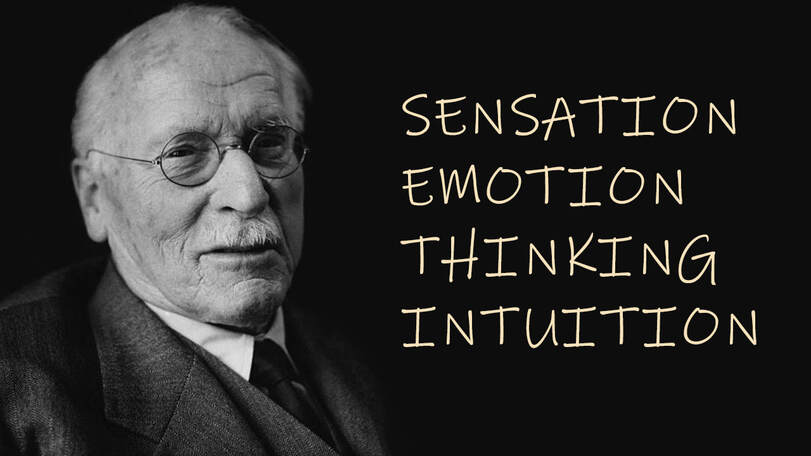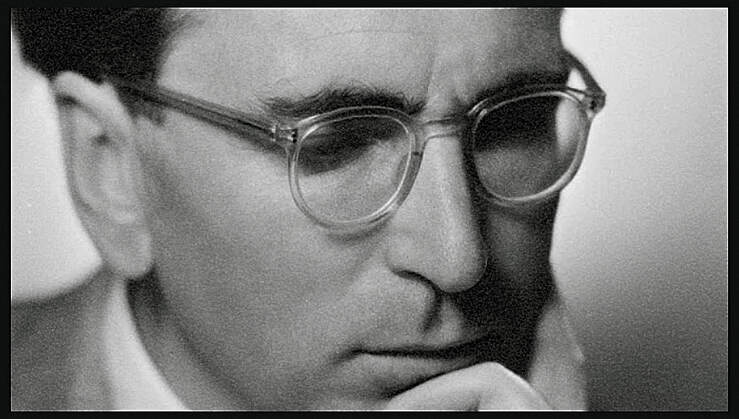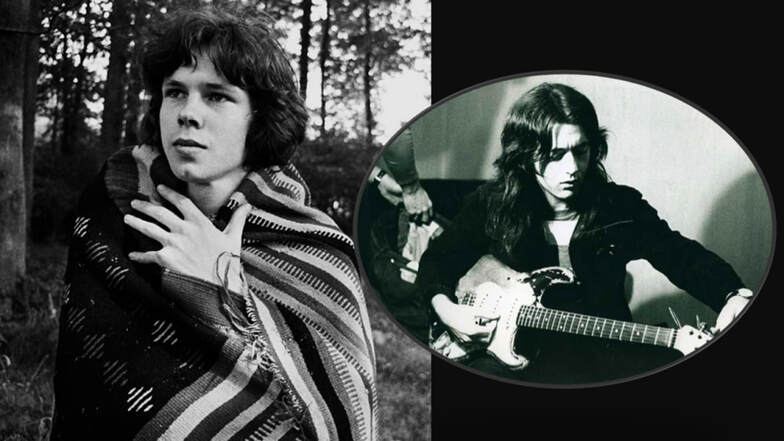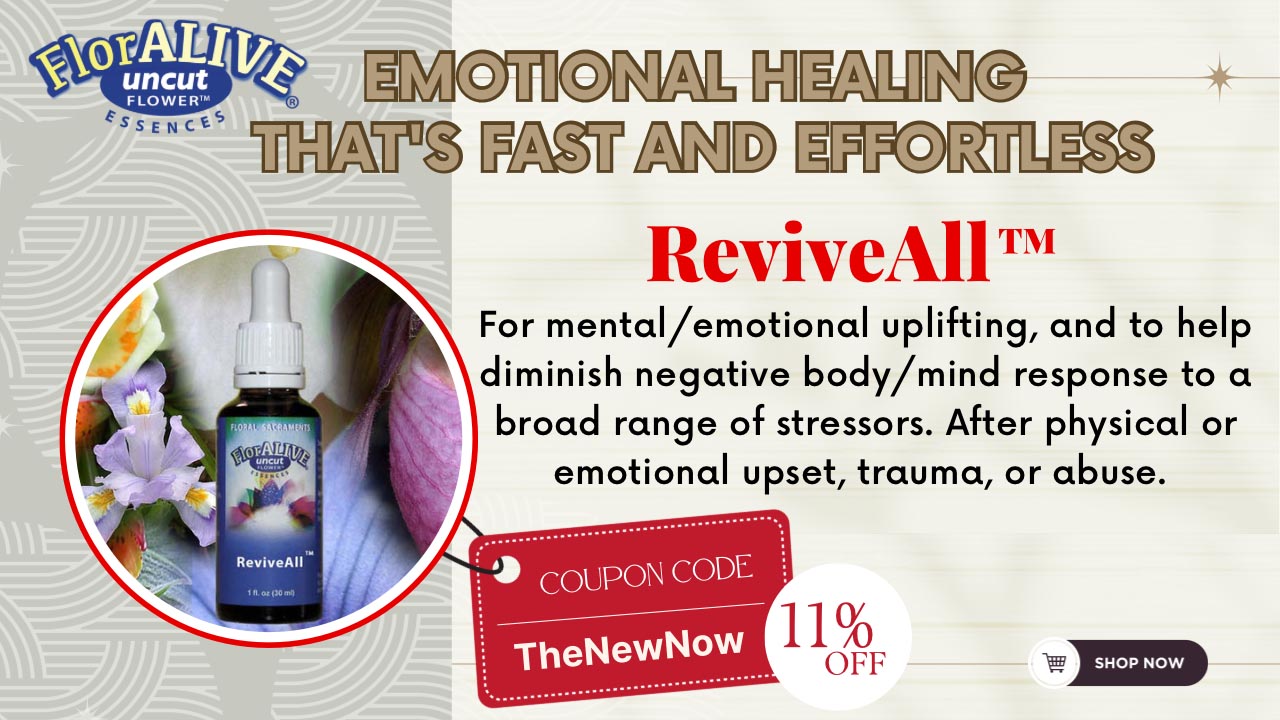DEEP PEAKS
…man can no longer be seen as a being whose basic concern is to satisfy drives and gratify instincts or, for that matter, to reconcile id, ego and superego; nor can the human reality be understood merely as the outcome of conditioning processes or conditioned reflexes. Here man is revealed as a being in search of meaning-a search whose futility seems to account for many of the ills of our age – Viktor Frankl
What is a peak-experience? How many people actually have one, and how do they change when it happens?
These are important questions, because many people go through life without finding out. Are they deprived and does it matter? Are they any less human because of this lack?
Most of us experience many “highs,” and life isn’t much fun without them. Some of us get addicted to the succession of highs and kicks. It’s why many people live for the weekend, when pressures of life are lightened by partying. We derive considerable pleasure from drinking, over-eating and having a “good time.”
The average party-animal does not realize that at some point the highs come to an end, and that life only has a certain amount of new pleasures to bestow. It’s a startling realization to those under the age of thirty. It is nonetheless true. After a point one must generate their pleasures from within, through intellectual, creative and spiritual interests. Superficial episodic types rarely make the shift, and soon become disconsolate when old pastimes cease being as exciting as before. It’s not long before this type slides into depression.
Indeed, for many people the universe is merely some kind of gigantic theme-park in which one can continually satiate their senses. Their daily activities are not based on any pressing legitimate search for meaning. Rather, they are based merely on the will to power and will to will.
The man who has a peak-experience may view it in just this way. He may continue wanting more of the same, just to titillate his senses. He may grow angry with himself, and disdainful toward life, if highs aren’t found to be on tap.
If his lust for highs remains unfulfilled he might consult a local coach or psychologist to find out what’s wrong. He may sign-on for group-therapy where he can compare his lifestyle with that of others in a similar funk.
…the hysteric seeks to augment themselves in an intensity of experience which lets him or her rise above themselves – Fritz Reimann (Anxiety)
Hey, anyone here had a peak-experience? Carl Rogers, and other psychologists who worked with groups, realized that although there was nothing particularly wrong with people, they may feel empty and worthless due to the relative monotony of their lives. They may crave experiences of a euphoric kind, and not feel fully human until they have them. However, they may obsess about this kind of experience without realizing the downsides. Neurotics tend to blame life for not continuously plying them with highs and kicks. They often seek to become very rich so the merriment never abates.
If he’s lucky, he’ll consult a psychologist who will explain to him the facts pertaining to his jaded condition. A competent expert will tell him that, important as they are, sensations make up only one part of existence and life-experience.
A Jungian, for example, will tell a client that a Self is actually comprised of four psychic aspects or hemispheres: Sensation, Emotion, Intellect and Intuition.
Each sphere of experience has inbuilt limits beyond which one cannot go. It’s meant to be this way, and is a good thing. However, all too often each type is found to be rather imbalanced.
Although Existential Psychologists think of human beings as a trinity, Jungians envision the human as a quaternity, as did the Hermeticists of old. Jung’s theory of the Four Types is an adaptation of the so-called Quaternity of medieval alchemists who saw man as the quintessence or fifth element arising from the synthesis of four baser elements: Fire, Water, Air and Earth. The divine quintessence cannot manifest as long as any of the lower constituent elements are not in balance. As Aristotle pointed out centuries ago, in his description of the Doctrine of the Mean, one aspect of consciousness cannot be allowed to dominate or become overly exaggerated, if psychic harmony is to be maintained In peak-experiences it is highly likely that sensation becomes the dominant factor. This is already the case throughout the world, and pathology is the direct result. Those who cannot maintain euphoric highs eventually become depressed, disdainful, psychotic and suicidal.
We already meet exceptionally emotional types, and know all-too-well how obnoxious they can be. Psychiatrists and psychologists are very familiar with this gushy type, a person lacking objectivity and rationality. We see how difficult it is making them see their shortcomings.
It’s not much different with intellectual types, who tend to live “in their heads,” and end up lacking common sense and empathy. Such types do great damage to their own bodies, which tend to be armored, stiff and toxic. Somatic feeling has all but disappeared, and they can sit on the most uncomfortable chairs in the consulting room, smiling away with that frozen superior look.
Alexander Lowen often noted that the thinking or intellectual type’s head gives the impression of being detached from the rest of the body. A longish neck and sloping shoulders is a common body-type with many intellectual types, lost in their heads.
Expert on Bioenergetics and body-language, Alexander Lowen (1910-2009), was the foremost protege of the great therapist Wilhelm Reich. He emphasized that therapy must include the body not only the psyche. Like his mentor, Lowen held that deadening of the soma (body) and armoring prevents one feeling pleasure. This in turn drives one to seek ever more extreme stimulation in dangerous sports and sadomasochistic activities. Eventually, one ceases being gratified. This creature – Freud’s “Discontent” – waves fists at the world for duping him, and his outlook on life becomes increasingly irrational, anarchic and necrophilous. The modern Thugocracy, of “social justice warriors,” is made up of lost souls such as this, desperately seeking an identity. They get one courtesy of the State that recruits them as “useful idiots.” As the great Gustave Le Bon showed, this type seeks a peak-experience by clanning up with others of his or her deviant kind.
The psychologist’s job is to address for a client why they’ve adopted their psychosomatic typology, and why it’s causing them discomfort. Reichean therapists, like Lowen and Janov, made a point of addressing why clients do not even feel the pain their bodies are in.
Peak-experiences are often the focus of those into extreme sports. Mountain-climbers are known to be among those whose lives fall apart after they’ve achieved their best feats. This is because everything else in life becomes intensely boring to them. They often retire to small shabby flats in dreary locations, giving in to alcoholism and drug-taking. They commit suicide more frequently than other sporty types in society. This shows us that they are certainly disturbed, and that their thinking is highly imbalanced. But why so? Why their addiction to the peak-experience? Is it a sign of high or low self-esteem?
This brings us back to the question of sensation, because it is obvious that the peak-experience had by a suicidal type was merely a matter of sensation. It is little more than a peak-sensation.
Afterward the junkie attempts to robotically repeat the experience, but finding this difficult or impossible, he or she finds life to be drained of meaning. They don’t realize that life is not supposed to have meaning.
But, where are the highs, demands the episodic? Wasn’t I promised an endless supply of them? Isn’t that why I have senses? Why has it all run dry?
Daft sensational types have no problem thinking of nature as one big theme-park, there expressly to satisfy their every tawdry infantile desire. Their interest in nature’s welfare is insincere and supeficial. Most people’s attitude toward nature (umwelt) is gnostic in complexion. Nature is not to be loved and understood, it’s to be escaped. While we are here on the planet, we might as well have fun at nature’s expense. We’re on our way somewhere better, where happiness is guaranteed. Nature denies us a lot, and makes us suffer. God grants all my wishes and bestows eternal pleasure.
Millions of people have this outlook. It’s the main reason they do what they do, and accounts for a great deal of the irrational nonsense going on in the world. Delicate senses are taxed and sullied by the incessant irrational demand for “more.” In the end one prostitutes themselves to the senses and pays dearly for doing so. One becomes decadent, discontented and compulsively outer-directed.
Like spoiled brats we just can’t accept that the ride comes to an end. This is why we aren’t satisfied with one or two versions of any product. There must be hundreds of brands and dozens of flavors and alternatives. We’re never satisfied, but rarely ask why? We never inquire into what sensations are, or that maybe it’s a good thing we’re not in a world of constant sensual edification. What kind of beings would we become if it were otherwise? Are we to take it that we, as humans, simply wish to have pleasure and avoid pain? Or is it more accurate to say that without opposites there can be neither pleasure nor pain?
Actually, pathology potentially exists at both ends of the spectrum. It exists for those who have a peak-experience and those who don’t.
For example, in a particular group undergoing therapy, not one person may have had a peak-experience. Their hang-up may be based on their need for one. A client may be reaching out to get advice on how to solve the problem. They want the solution, as if it is something to be given them by another.
On the other side of the spectrum is the person who has had one or more peak-experiences. Why are they in therapy. Well, as already said, their problem is how to adjust to a “normal” everyday existence after their senses have been intoxicated and their minds “blown.”
Normal is distasteful and monotonous. They’ve touched the stars, and can no longer live on plain ol’ earth. They’re too special for that.
Whether it is by way of physical effort, luck, success, fame, drugs or some other cause, the person who has been catapulted to an ultimate high, may go through the whole experience without realizing they’ve simply arrived at the limit of the sphere of sensation. There’s no going beyond that boundary and that is what their hedonistic egos can’t stand.
During and after a peak-experience a person feels special. They like it and want it over and over again. Of course, one cannot continue feeling any particular way without becoming desensitized. Sadly, as psychologists know, it is frequently the most unspecial people who are addicted to repeating peak-experiences. It’s their own relative insignificance that affronts them. In this sense, their turning to the world for alleviation is not out of love and care but self-loathing. The man who hates himself cannot love nature. His very enjoyments in nature are ultimately purile and shallow.
Such a person must question their ego-settings, and acknowledge the infantilism in their search for more fleeting highs.
Even if sensational experiences continued ad infinitum, would it make a person happy? Would their joys last for any length of time?
Perhaps pleasures are meant to be fleeting? Maybe the abnormality lies in wanting it to be otherwise. In therapy, a client might need to understand that the demand they’re placing on life – that it be eternally pleasurable – is irrational. Perhaps they should understand that their search for continual sensational titillation, courtesy of the world, is doomed to fail.
As psychologist Viktor Frankl stated, meaning must eventually come from within.
Austrian psychologist Viktor Frankl (1905-1997). He felt that psychotherapy is useful as long as it comprehends the basic need of human beings, namely the search for meaning. In fact, therapy may even awaken the Will-to-Meaning in someone who sees their life as empty and meaningless. Frankl’s ideas were inspired by the great Otto Rank, who developed Will Therapy. Both men recognized that even when a person has everything they could possibly want materially, there remains a longing for purpose and meaningfulness. It’s ontological and essential as one rises above a purely sensational and recreational level of existence. Although his ideas were influenced by Nietzsche, Rank and Adler, Frankl brilliantly pushed their points about consciousness and behavior to the furthest extent. According to him, the pleasure-addict’s desire for peak-experience exists not merely to avoid boredom, but to seek meaning. Similarly, the neurotic develops his odd, sometimes disturbing tendencies largely for the same reason. For Frankl, the soul of man can’t bear a sense of futility and meaninglessness. Some misguided people would rather hang on to their hang-ups than be “well,” “adjusted” and nondescript. Their personalities just wont allow it. “Hey, I may be mad,” says the neurotic…”but I’m sure as hell not boring!…If I do myself enough damage, I’m sure to be noticed…”
What we fail to understand is that the world is not the ultimate source of joy and pleasure. However, once this fact is accepted, many people are shaken to the core. Their entire outlook on life drastically changes for the worse. Indeed, many pathological tendencies – particularly neurosis and psychosis – emerge due to this upsetting revelation.
Neurosis and psychosis are irrational coping-mechanisms, precipitating further psychological meltdown. This is the case not only on the personal level, but on the social. It is quite possible for an entire culture to become psychotic.
Generally speaking, a neurotic blames himself for his predicament, while a psychotic blames the world for denying him “promised” successes. The former curses himself for being too weak to get what he wants, while the latter curses others for getting in the way.
Neurosis and psychosis have the same root. They are both inauthentic reactions against one’s failure to bring meaning from within. A study of the similarities and differences between the two mechanisms is beyond the scope of this present article.
Before a major crisis is reached, a person in distress may decide to reach out for help. This usually occurs when they experience a slump and bout of serious depression. After years of sucking at the marrow of life and exhausting themselves on tawdry sensations, they fall into a funk and start remonstrating against life. The cupboard is bare…it’s so damn boring!
This is were psychoanalysis comes in.
A client enters therapy jaded and hostile. He wants to know why sensational gratification eludes him. Another client comes to find out how to have a life-changing peak-experience. His life seems empty and worthless without it.
The therapist, of course, understands their predicaments. Client-A does not realize that his addiction is bound to plague him until a crisis is reached. Client-B doesn’t see that his desire for an euphoric experience may leave him forever trapped in a similar mess as client-A. Maybe if they talk and sharestories, they’ll get to see things clearly. This was the approach favored by Carl Rogers and other pioneers of Group-Therapy techniques.
Strange that a perfectly legitimate need for an ecstatic experience can lead one to crave self-destruction. What a paradox! Sadly, the line between genius and psychosis tends to be all too thin.
Nick Drake (1948-1974) and Rory Gallagher (1948-1995), were two of many suicidal types who finally killed themsevles. Why did they do it? Why not carry on like other young talents? Could it be that they were unable to deal with failure or being second best? Were they megaliomaniacal and self-absorbed? Were they set on taking the world by storm and, after finding that they were not permanently top of the heap, killed themselves due to acute frustration and self-loathing? As psychologists know, it’s not at all far-fetched. The ego (and superego) work in mysterious and perverted ways. There are dangers in store for anyone who sets their sights too high. Dangers await those seeking nothing but peak-experiences and those who’ve had them.
He who binds to himself a joy. does the winged life destroy. He who kisses the joy as it flies, lives in eternity’s sunrise – William Blake
But, again, as psychologists such as Rogers and Frankl pointed out, it is for society and parents to teach children the facts of the matter. Pleasures are meant to be fleeting and ultimate joy comes only when one brings meaning from within. Life is not there to give one meaning. It’s there to be the object of meaning, the source of which lies within the individual.
In this sense, the greatest addiction is our belief in the opposite. We prostitute ourselves to the will of others, and shun anyone who comes to free us from such a state of tyranny and self-deception. We continually show that we do not want the freedom allowing us to turn within. We loathe the freedom leading back to ourselves as fonts of wisdom.
Patients no longer complain of inferiority feelings or sexual frustration as they did in the age of Adler and Freud. Today they come to see us psychiatrists because of feelings of futility – Viktor Frankl
Thugocracy and gynocracy letting you know how much they hate power and authority. Political marches appear to be about vital causes. Actually, it’s mostly a case of window-dressing. The modern orgiastic Thugocracy cares for nothing but fun and the search for endless sensual gratification. When one finds out that the bread and circuses are not infinite, they become pathologically discontented. They bang their spoons and spill out into the streets to demand “reforms” in the status quo. Unable and unwilling to admit to themselves the true reasons for their malcontent, they hide behind what appear legitimate humanitarian causes. The vast majority of the Discontents seek a return to the womb. Their thinking is almost entirely composed of womb-metaphors. In short, the anarchic Discontent turns on the world when it ceases to glut their sodden senses. Watch me howl, snarl, smash and shatter your horrid world for not gratifying my every perverse whim and desire!
If it weren’t for reality, doctor, I’d be perfectly fine – Anonymous
As Existentialists such as Soren Kierkegaard, Gabriel Marcel and Martin Heidegger knew, it is hatred of aloneness and self-knowledge that lies at the foundation of the world’s sociopolitical problems, none of which can be permanently resolved until the dynamics of consciousness are seriously considered and understood.
As the Existentialists beld, man’s penchant for Bad Faith or Inauthenticity doesn’t bother the masses. We’d prefer it if such problems were never addressed, and have designed our societies so they are never seriously broached.
Self-deceived neurotic and psychotic personality types both end up reacting to reality not as it is, but as they falsely perceive it to be. Tragically, what happens on the individual level can easily occur on the social level. One look at our world confirms this to be absolutely true.
As I put it, self-deception is one of the main foundations of pathology. It’s a syndrome born from a deeper layer of self-loathing or autophobia, one of the least addressed psychic conditions there is. Every other type of crime and violence has been thoroughly addressed and catalogued, but not the crimes we do to ourselves. That remains a taboo subject. Not one in a million people know the first thing about it. This is the case even though the average individual’s entire personality is based on deep psychophobia or hatred of their own minds.
Now we understand why people are hyper-extroverted and infatuated with nonsense; why they commit suicide when their irrational demands on life are thwarted. The infantile howling for more pleasure and fun – for so-called peak-experiences – is often rooted in one’s flight from themselves. Since this attitude is not consistent with nature’s ordinances, the sensational type puts himself at loggerheads with the Natural Order.
Psychologically, this means they lose contact with the voice of conscience within; conscience being the echo of the Moral Universe without.
Such a self-mutilated neurotic must now rely on the voice of the superego, the obedient servant of the Collective. Hence more pathology – more selflessness, conformity docility and disorientation.
The person who attunes with society to a pathological degree is usually a neurotic personality type. As a neurotic, I know for sure that in all matters society and others are always right, whereas I am always wrong. My security and wellbeing come by suppressing true feeling and going along with the directives of the Collective. I must not stand out in any way, lest I be derided and flooded with guilt.
In each and every experience of the world, there is also always the experience of oneself as experiencer. What happens if one tires of this fact? Does not a man’s self-schema determine his outlook on reality? And if, as Frankl holds, humans are defined by their essential quest for meaning (their Will-to-Meaning), can we take it that there are also in the world people who find themselves absolutely incapable of finding meaning? What do we know about this type? Would we recognize such a type if we met one? This type suffers knowing there’s meaning in life that they cannot grasp. According to Frankl, they are not prepared to endure the legitimate suffering that comes when one sincerely goes in search of truth. That avoidance ensures that they remain incapable of bringing meaning from within their being. Of course the neurotic hates themselves for their existential weakness. Some people even commit suicide due to their mounting self-loathing. Others simply endure mediocre lives depending on occasional spikes of artificial happiness to fill the void. Others compensate by becoming disciples of the faustian Will-to-Power, filling the vacuum of their lives by way of power-trips, competitiveness, undermining rivals and money-lust. As I show elsewhere, nowadays the Will-to-Power has degenerated into a necrophilous Will-to-Negation which holds nothing sacred, and psychotically seeks to undermine and overthrow reality itself.
The feeling of meaninglessness, the existential vacuum, is increasing and spreading to the extent that, in truth, it may be called a mass neurosis – Viktor Frankl
According to Frankl, the core reason for a sensational-type’s addictivesness to the world of activity, is not only to escape boredom, but to relentlessly seek a sense of meaningfulness. This type answers a call deep within him. However, his problem lies in his inability to overcome his greatest addiction – that meaning comes from without. This error is the result of his improper upbringing and decadent culture. Inept parents haven’t bothered letting him know the truth, that meaning must come from within, and that it’s okay to suffer pain in the process of letting it come forth. Parents habitually send their children out into the world in a vulnerable state, trusting that it bestows happiness and purpose.
The quest for meaning drives a sensational-type into all sorts of haphazad adventures. In each peak-experience the addict discovers something about himself. Hence his addictiveness. However, in the case of a suicidal type, no essential meaning has been discovered. Vexingly, the inner cupboard is found to be bare. Thus the search ends abruptly, and there seems to be no point carrying on. Finding themselves existentially voided, this type decides to put an end to their particular kind of neurotic suffering, namely, knowing there’s meaning in life that cannot be found.
I thereby understand the primordial anthropological fact that being human is being always directed, and pointing, to something or someone other than oneself: to a meaning to fulfill or another human being to encounter, a cause to serve or a person to love. Only to the extent that someone is living out this self-transcendence of human existence, is he truly human or does he become his true self. He becomes so, not by concerning himself with his self’s actualization, but by forgetting himself and giving himself, overlooking himself and focusing outward – Viktor Frankl
Can we surmise from this that a suicide has grown tired not only of the world, but of themselves? Is their relationship with their own being one of sensationalism? Do they not take themselves and their existence seriously? Is it just a matter of temporary distraction and fun? Is their final act a sign to others of their contempt for existence and failure to tap the wells of meaning within? After all the extroversion and pleasure, have they simply grown tired of being selves?
Frankl thinks it occurs when one is forced by reality to break through the enclosure standing between self and world. For self-absorbed narcissists this is difficult and often impossible. It requires self-transcendence, and that is where the egoist feels acutely disoriented and disempowered. They’d rather commit suicide than face reality on its own terms. They prefer to remain within their solipsistic bubble and not empathically reach out to others in a healthy way. As far as they’re concerned they need be intimate only with themselves. They’ve nothing to learn from social enounters. They’re perfect as they are, in every way.
The self-righteous narcissist psychotically objects strongly when and if the world attempts to intrude into their sacred enclosure. Essentially they are haters of reality, and quickly adopt a psychotic view of it. They end their lives in protest against a world that doesn’t understand them.
Their final cry is…”How dare you tell me I must bring meaning from within…That’s not my job, and I don’t want to live in this stupid world any longer if that’s the way it’s gotta be…To hell with meaning and with life!…”
.
When a man cannot find meaning, he numbs himself with pleasure – Viktor Frankl
Many thinkers continue to doubt the relevance of psychology. It’s vitally important for us to heed their criticisms, and take them onboard. However, one look at the state of decay in our world, and we realize that under no circumstances can we dispense with psychology, imperfect as it certainly is.
Pathological behavior is on the rise. It’s not due to the presence of psychology. It’s due to the utter lack of insight into the dynamics of what we call a psyche or Self.
Since self-deception is the major source of pathology, are we not bound to study and understand its dynamics? Isn’t that the sane person’s choice?
Certain thinkers (such as Blake, Rank and Sartre, etc) believed we’ve erected what is known as the “unconscious” in order to continue evading the truth about ourselves. Despite this ingenious attempt to perpetuate self-deception, the psyche persists in trying to bring the truth to us. However, as our dreams betray, messages from the deep psyche are perpetually scrambled by the ego and superego. We are therefore continually at war within. It’s the result of living in an anti-psychological age and of being the enemies of truth and wisdom.
Indian philosopher Jiddu Krishnamurti (1895-1986). Like William Blake before him, he emphasized that by no means should we attempt to hold on to any pleasureable experience. We close ourselves off to life when we crave to have more and to own any experience. Sensational types epitomize this error. Their entire personality structure depends on the assurance that meaning comes exclusively from outside. Like many others in our society, they end up morally and existentially destitute.
This state of psychic apartheid is most conspicuous in those obsessively wasting time in the political milieu. But as the great thinkers warned, no matter how we attempt to arrange and rearrange the world, so it brings us meaning from without, the more nature strikes back in the form of psychic distress. Political reform is based on our secret hatred of the natural. It’s rooted in our intense self-loathing and inability to bring meaning from within.
We praise and vote for whatever government permits us to continue this rotten status quo. It amounts to a chaotic Alice’s kitchen. Loads of salt and pepper chucked around but none in the actual dish, which always comes out tasting foul. Bon Appetit!
. . .
Michael Tsarion
Michael Tsarion (2023)
1. Use your affiliate link for either Healing Support promo or for Heartmend promo.
2. When the customer enters the floralive site (thru your link) they must add EITHER
A. add 3 Healing Support (combination essence) and 3 Blue Eyed Grass to the shopping cart, then go to checkout and enter the coupon code for this promo which is: HSHOLIDAYS (not case sensitive).
This will charge them for the Healing Support and they will get the Blue Eyed Grass free
Or
B. Add 6 Heartmend to shopping cart, go to checkout, there will be a charge for 4 Heartmend and two free when the coupon code HMHOLIDAYS is used.



























